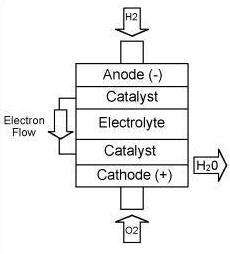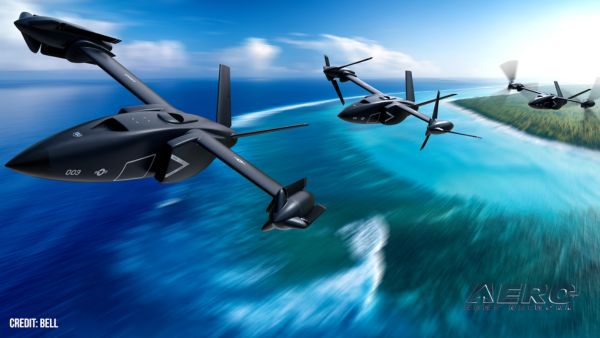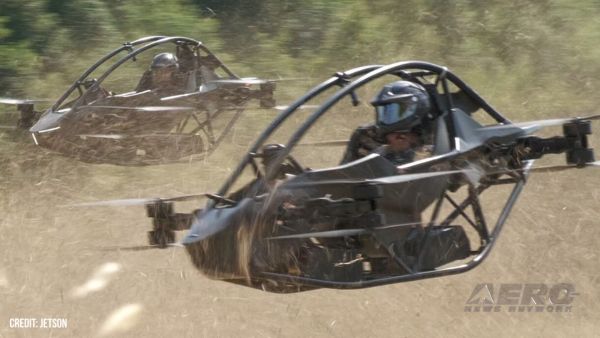Sun, Jul 10, 2011
Results Increase General Industry Understanding Of The
Technology And Its Potential
Fuel cell technology is emerging as a potential solution for
emissions-free ground operations for commercial aircraft, which has
prompted Airbus to partner with the German Aerospace Center
(DLR) in examining the potential of this technology. As part of
that evaluation process, fuel cells were integrated into existing
aircraft and successfully performed the first flight test on a
civil transport aircraft in 2008. In that test, the fuel cell
system provided power for the aircraft’s back-up systems.

DLR Airbus Test Aircraft
In order to gain more details on the potential of fuel cell
technology as supply for electric power in aircraft ground
operation, a DLR designed technology demonstrator has been
installed in the DLR owned A320 fuel cell test aircraft at the
Airbus site in Hamburg. The technology demonstrator consists of a
fuel cell powering an electric motor which drives the nose landing
gear wheels allowing the aircraft to taxi autonomously. The
objective of these tests is to further validate the potential of
the integrated fuel cell technology for powering future aircraft
functionalities such as autonomous taxiing. The data collected in
the tests will be analysed by Airbus and the DLR to further develop
the overall integration of this technology and potential further
optimisation possibilities.
Within the joint R&T activities, Airbus is in charge of the
overall aircraft system architecture and technology integration
into the aircraft, whereas the DLR is driving some of the basic
research activities for aerospace fuel cell technology. The landing
gear itself with the integrated DLR-designed fuel cell powered
motor is provided by Lufthansa Technik in Hamburg.

Basic Fuel Cell Schematic
Airbus considers fuel cell technology as a key contributor
to the ACARE 2020 goals, which foresee the reduction of CO2
emissions by 50%, NOx emissions by 80% and noise by 50%.
Consequently Airbus is pursuing engagement of industrial research
partners in that field. In addition Airbus is strongly engaging in
implementing and testing bio-fuel technology and actively supports
the installation of local bio-fuel value-chains around the world.
With regard to wider initiatives such as Air Traffic Management
(ATM), Airbus co-operates with all the protagonists to deliver the
best solutions for airlines and the environment. Airbus has a
leading role in the SESAR program to improve the efficiency of
European ATM and works with teams involved in the NEXT GEN project
designed to do the same for US ATM.
More News
From 2014 (YouTube Version): One Of The Airshow World's Pre-Eminent Formation Teams Chats About The State Of The Industry At EAA AirVenture 2014, ANN News Editor Tom Patton gets th>[...]
Tactical Air Navigation (TACAN) An ultra-high frequency electronic rho-theta air navigation aid which provides suitably equipped aircraft a continuous indication of bearing and dis>[...]
Aero Linx: Doobert Hi, we're Chris & Rachael Roy, founders and owners of Doobert. Chris is a technology guy in his “day” job and used his experience to create Doobe>[...]
The Airplane Was Spinning In A Nose-Down Attitude Before It Impacted Terrain On June 20, 2025, at 0900 eastern daylight time, a Pitts Aerobatics S-2B, N79AV, was destroyed when it >[...]
Also: United Elite Sues, Newark ATC Transitions, Discovery Moves?, Textron @ KOSH The Commemorative Air Force Airbase Arizona is taking its “Flying Legends of Victory Tour&rd>[...]
 Classic Aero-TV: Up Close And Personal - The Aeroshell Aerobatic Team at Oshkosh
Classic Aero-TV: Up Close And Personal - The Aeroshell Aerobatic Team at Oshkosh ANN's Daily Aero-Term (07.13.25): Tactical Air Navigation (TACAN)
ANN's Daily Aero-Term (07.13.25): Tactical Air Navigation (TACAN) ANN's Daily Aero-Linx (07.13.25)
ANN's Daily Aero-Linx (07.13.25) NTSB Prelim: Pitts S2
NTSB Prelim: Pitts S2 Airborne 07.09.25: B-17 Sentimental Journey, Airport Scandal, NORAD Intercepts
Airborne 07.09.25: B-17 Sentimental Journey, Airport Scandal, NORAD Intercepts




